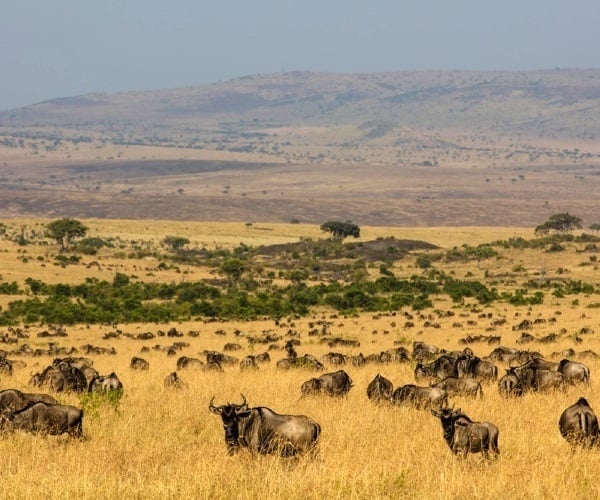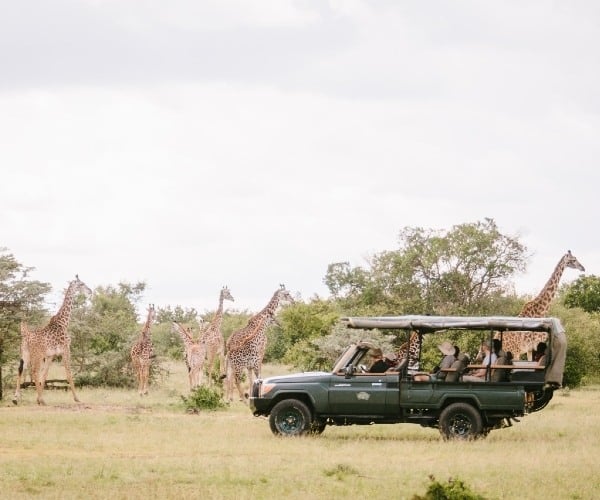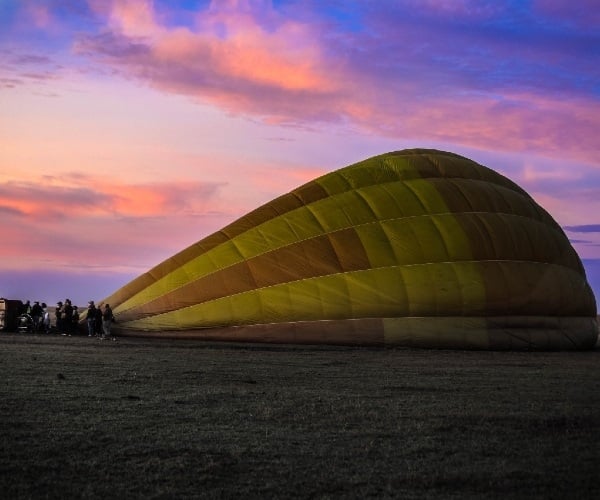Thousands upon thousands of hooves thunder across the open savannah plains as the wildebeest mega-herds search for greener pastures; a desert turns into a watery playground where elephants swim in lagoons and African wild dog packs hunt on grassy islands; dormant volcanoes covered in emerald-green forests are home to the world’s most endangered primate species. All of these completely different sights, sounds and scenes (and so many more) are found on just one spectacular continent – Africa.
Things seem to change before your eyes as you journey through Africa, becoming immersed in diverse landscapes and encountering fascinating wildlife and rich cultural heritage. The two main safari regions are East Africa and Southern Africa, and each holds its own unique natural and cultural treasures. Until you know what these key differences are, and which are most appealing to you, choosing where to go on safari is an almost impossible task.
These are the three most important comparisons that will get you started on thinking about which region is going to be the perfect safari match for you!
Landscape and climate
East Africa is made up of Kenya, Tanzania, Zanzibar, Uganda, Rwanda and Burundi, although some people consider the latter three as Central Africa. The region has magnificent landscapes such as Kenya’s vast and biodiverse Maasai Mara ecosystem, snowcapped Mount Kilimanjaro and the Serengeti Plains in Tanzania, the montane rain forests of Uganda and Rwanda. Southern Africa encompasses South Africa, Zambia, Zimbabwe, Botswana, Namibia and Mozambique, with diverse landscapes scattered across them. Botswana’s Okavango Delta wetland lies alongside the semi-arid Kalahari Desert, Victoria Falls provides a natural border between Zimbabwe and Zambia, and Kruger is South Africa’s famous Big 5 national park.
Weather is another distinguishing factor and one that can have a significant impact on the safari experience. In East Africa, October is generally the beginning of the ‘short rains’ that can continue into December. They are short-lived showers that break in the late afternoon, whereas the ‘long rains’ in April and May are heavier downpours. In Southern Africa, the tropical storms bring the general rains come between November and March, although there is some variation between countries. From May to August both regions experience cooler weather the cooler months in both regions. Temperatures are generally more or less the same throughout the year, with May to August being the cooler months for both regions.
IMPORTANT NOTICE:
If you are reading this article anywhere other than on A Luxury Travel Blog, then the chances are that this content has been stolen without permission.
Please make a note of the web address above and contact A Luxury Travel Blog to advise them of this issue.
Thank you for your help in combatting content theft.
Wildlife diversity and density
Most of Africa’s popular wildlife, including the iconic Big 5 (elephant, buffalo, leopard, lion and rhino), can be sighted in its Eastern and Southern parts, although there are several bird species and a couple of mammal species that are endemic to certain regional areas. The comparison to made between the two regions is not so much about what can be seen but rather how many of one thing you are likely to see.

East Africa is famous for its massive concentrations of wild animals that are able to freely roam and follow migratory patterns across unfenced but still protected wilderness areas. Thanks to this great density of wildlife and the open wilderness spaces, game-viewing on a traditional safari (not primate tracking) is considered excellent throughout the year. This is best typified on the savannah plains of the Maasai Mara and Serengeti national parks during the Great Wildebeest Migration. This is an incredible wildlife spectacle, the sheer size of which is not seen anywhere else in Africa.

Overall, you won’t see game animals in such impressive numbers in Southern Africa. In Botswana, however, you will find enormous populations of elephants in Chobe National Park, and the zebra migration between Chobe and the Nxai Pan is Africa’s longest mammal migration. South Africa’s Kruger National Park and its private reserves are considered prime Big 5 territory and daily sightings are a common occurrence. The best time for a safari in Southern Africa is the dry winter season between May and October because the vegetation thins out and animals stay close to water sources.
Safari activities
Game drives and guided bush walks are a wonderful part of the safari experience in both East and Southern Africa. The biggest difference between the 4×4 game drive vehicles used in the two regions is that those used in East African safaris have a roof. The three to four rows of tiered seating and open-sided vehicles is generally standard for safaris in both regions, although variations are always possible, so it is important to ask the tour operator or lodge beforehand.

The ’sky safari’ is very much associated with East African safaris, and to look down over the Maasai Mara or Serengeti from a hot air balloon is a unique and unforgettable experience. Water-based safaris like mokoro rides along the channels of the Okavango Delta or sunset boat cruises along the Zambezi River are the special features of a Southern African safari.
The ‘best place for a safari’ depends on what you want to see and experience while on safari. So understanding these regional differences will help you find the destination that will make your wildest safari dreams come true!
Calvin Cottar is Director and Owner at Cottar’s 1920s Safaris. Cottar’s 1920s Safaris is an award-winning luxury 1920s safari camp and private bush villa located in the famous ‘seventh’ natural wonder of the world, the Maasai Mara in Kenya, and owned and managed by the oldest established and continuing safari family in Africa.
If you would like to be a guest blogger on A Luxury Travel Blog in order to raise your profile, please contact us.




